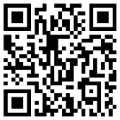The Use of Social Media for New College Student Development Process
Abstract
Full Text:
PDFReferences
M. N. Hajli, “A study of the impact of social media on consumers,” Int. J. Mark. Res., vol. 56, no. 3, pp. 387–404, May 2014.
P. B. Brandtzæg, “Social networking sites: Their users and social implications - A longitudinal study,” J. Comput. Commun., vol. 17, no. 4, pp. 467–488, 2012.
S. Siddiqui and T. Singh, “Social Media its Impact with Positive and Negative Aspects,” Int. J. Comput. Appl. Technol. Res., vol. 5, no. 2, pp. 71–75, 2016.
M. Owusu-Acheaw and A. G. Larson, “Use of Social Media and its Impact on Academic Performance of Tertiary Institution Students: A Study of Students of Koforidua Polutechnic, Ghana,” J. Educ. Pract., vol. 6, no. 6, pp. 94–101, 2015.
F. Farooq and Z. Jan, “The Impact of Social Networking to Influence Marketing through Product Reviews,” Int. J. Inf. Commun. Technol. Res. , vol. 2, no. 8, pp. 627–637, 2012. [6] M. Sponcil and P. Gitimu, “Use of social media by college students : Relationship to communication and self-concept,” J. Technol. Res., vol. 4, pp. 1–14, 2013.
J. Amedie, “Impact of Social Media on Society,” St. Cl. Univ. Sch. Commons, no. December, pp. 48–49, 2012.
Sumaryanto, “Pola Pengembangan Pembinaan Kegiatan Kemahasiswaan,” in Diskusi Pendidikan BEM FIP UNY, 2012. [9] F. L. Kambey and S. Suharnomo, “Pengaruh Pembinaan, Pelatihan Dan Pengembangan, Pemberdayaan Dan Partisipasi Terhadap Kinerja Karyawan,” J. Stud. Manaj. Organ., vol. 10, no. 2, pp. 142–151, 2013.
S.-M. Kim, “Exploratory Research on Social Media and Digital Writing : Qualitative Interview of Japanese College Students,” J. SocioInformatics, vol. 8, no. 1, pp. 13–27, 2016.
C. MacDougall and E. Fudge, “Planning and recruiting the sample for focus groups and in-depth interviews,” Qual. Health Res., vol. 11, no. 1, pp. 117–126, 2001.
Z. R. Milena, G. Dainora, and S. Alin, “Qualitative Research Methods: A Comparison Between Focus-Group And In-Depth Interview,” Ann. Univ. Oradea, Econ. Sci. Ser., vol. 17, no. 4, pp. 1279–1283, 2008.
C. Boyce and P. Neale, “Conducting In-Depth Interviews: A Guide for Designing and Conducting In-Depth Interviews for Evaluation Input,” Pathfind. Int. Tool Ser. Monit. Eval. - 2, 2006.
Y. Hu, L. Manikonda, and S. Kambhampati, “What We Instagram : A First Analysis of Instagram Photo Content and User Types,” Proc. ICWSM. AAAI., p. 4, 2014.
DOI: http://dx.doi.org/10.17977/um010v1i22018p025
Refbacks
- There are currently no refbacks.
 | Letters in Information Technology Education (LITE) |

1.png)
1.png)
4.png)
1.png)
.png)
.png)

3.png)
1.png)
1.png)

3.jpg)